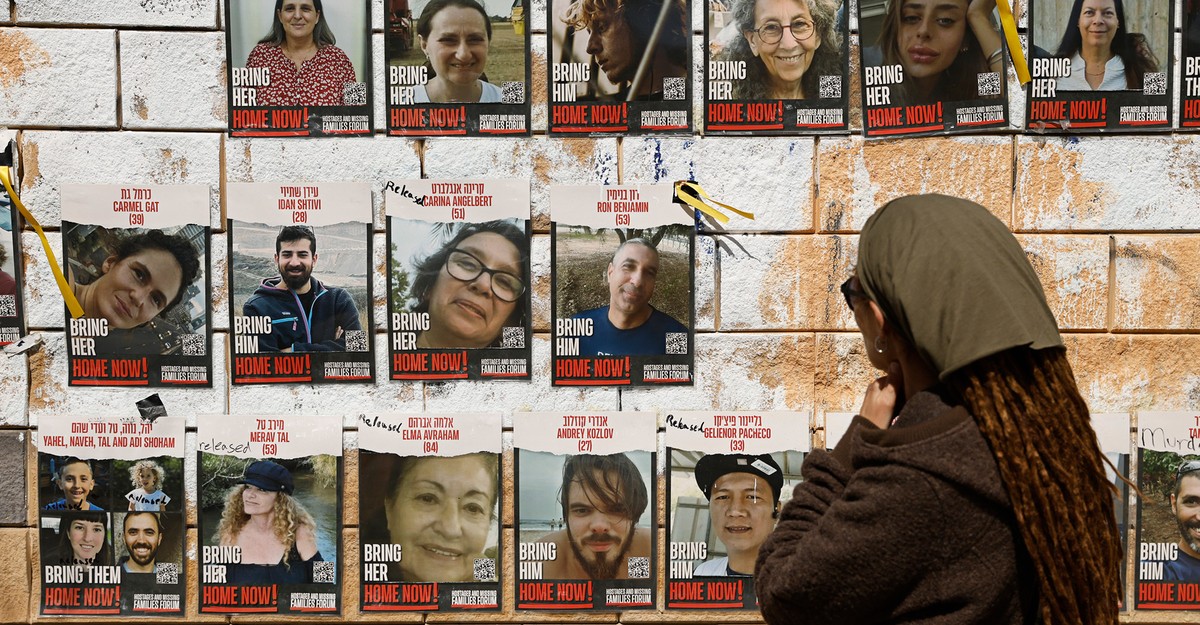Reading too much into the language seems, at this point, to be less of a danger than reading too little into it.
This week, Israel released an appalling video featuring five female Israeli soldiers taken captive at Nahal Oz military base on October 7. Fearful and bloody, the women beg for their lives while Hamas fighters mill around and alternately threaten to kill them and compliment their appearance. The captors call the women “sabaya,” which Israel translated as “women who can get pregnant.” Almost immediately, others disputed the translation and said sabaya referred merely to “female captives” and included no reference to their fertility. “The Arabic word sabaya doesn’t have sexual connotations,” the Al Jazeera journalist Laila Al-Arian wrote in a post on X, taking exception to a Washington Post article that said that it did. She said the Israeli translation was “playing on racist and orientalist tropes about Arabs and Muslims.”
These are real women and victims of ongoing war crimes, so it does seem excessively lurid to suggest, without direct evidence, that they have been raped in captivity for the past several months. (“Eight months,” the Israelis noted, allowing readers to do the gestational math. “Think of what that means for these young women.”) But to assert that sabaya is devoid of sexual connotation reflects ignorance, at best. The word is well attested in classical sources and refers to female captives; the choice of a classical term over a modern one implies a fondness for classical modes of war, which codified sexual violence at scale. Just as concubine and comfort woman carry the befoulments of their historic use, sabaya is straightforwardly associated with what we moderns call rape. Anyone who uses sabaya in modern Gaza or Raqqah can be assumed to have specific and disgusting reasons to want to revive it.
This is just straight up racist propaganda. No other way to describe it
sabaya is straightforwardly associated with what we moderns call rape
Absolutely factually incorrect. Sabaya is the plural of sabiye which means young woman/girl. The masculine form is sabi which means boy or shab for young man (not exactly symmetric like use of guy vs girl in english). Zero sexual connotation and used in everyday language in levantine arabic.
Yep. And the subheading I really have a problem with.
Reading too much into the language seems, at this point, to be less of a danger than reading too little into it.
The implication being that it’s low stakes to make this accusation without solid evidence. In reality the whole justification from the West for the state of affairs between Israel and Palestine is that Arabs are a bunch of backwards savages, and this extends to the way the West has acted throughout the Middle East.
Isn’t Sabaya just like Senorita where they indicate an unmarried young woman? Or, like, Miss?
Pretty much yes. (Ma)demoiselle vs madame are also used due to french influence over the region for singular use but sabaya is what you would use for a group of younger women with neswein being the alternative for older/married women.
This article from November of last year would dispute your claim.
A group of young girls; صبايا
With the letter; Sad / ص
e.g. “girls / 9abaya” went out for a walk.
This word is not a conversation here, just for clarification. — A group of women/girls of war’s loot — (sex slaves); سبايا
With the letter; S/س
Sabaya سبايا which are literally the war’s loot of girls/women, and according to Islam is Halal.
The word “Sabaya” unequivocally means “women captives at war for sex”.
So both of those words are spelled sabaya when anglicized and while I will admit I was not familiar with the soft s variant because it’s antiquated (and still not necessarily sexual in meaning even if that one is debatable), it doesn’t sound like the man in the video who is supposed to have said that even said either of those words to me. I genuinely can’t even make out what the word he said is.
Why is this the subject of debate nearly 8 months after the fact?
Because the hostage families decided to release recovered footage to put additional pressure on getting them released.
Also, because I went down the rabbit hole trying to find info on this stuff, I think I’ll share additional evidence I gathered. Specifically that sabaya (or saby for short) has been used in the context of ISIS taking female slaves (often for sex).
From Infatuated with Martyrdom Female Jihadism from Al-Qaeda to the ‘Islamic State’

Clippings from Dabiq Magazine (English Language Magazine Published by ISIS):
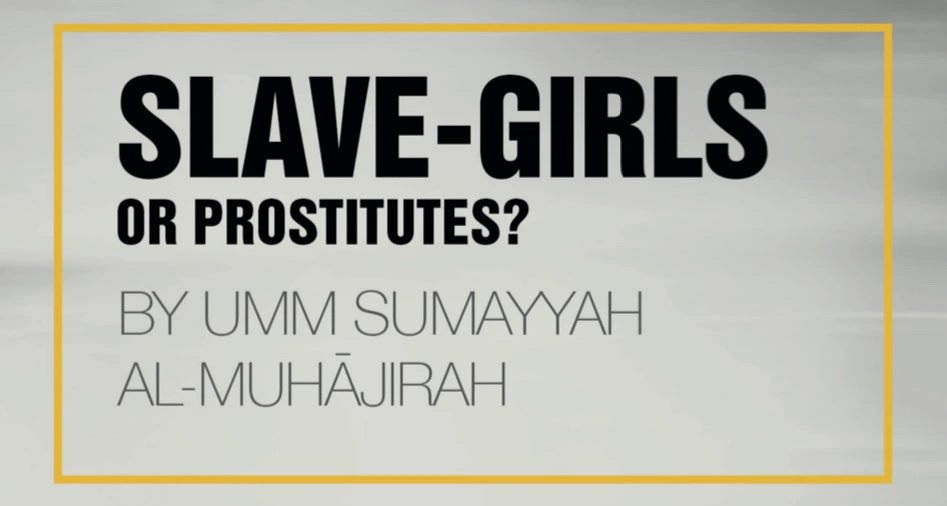
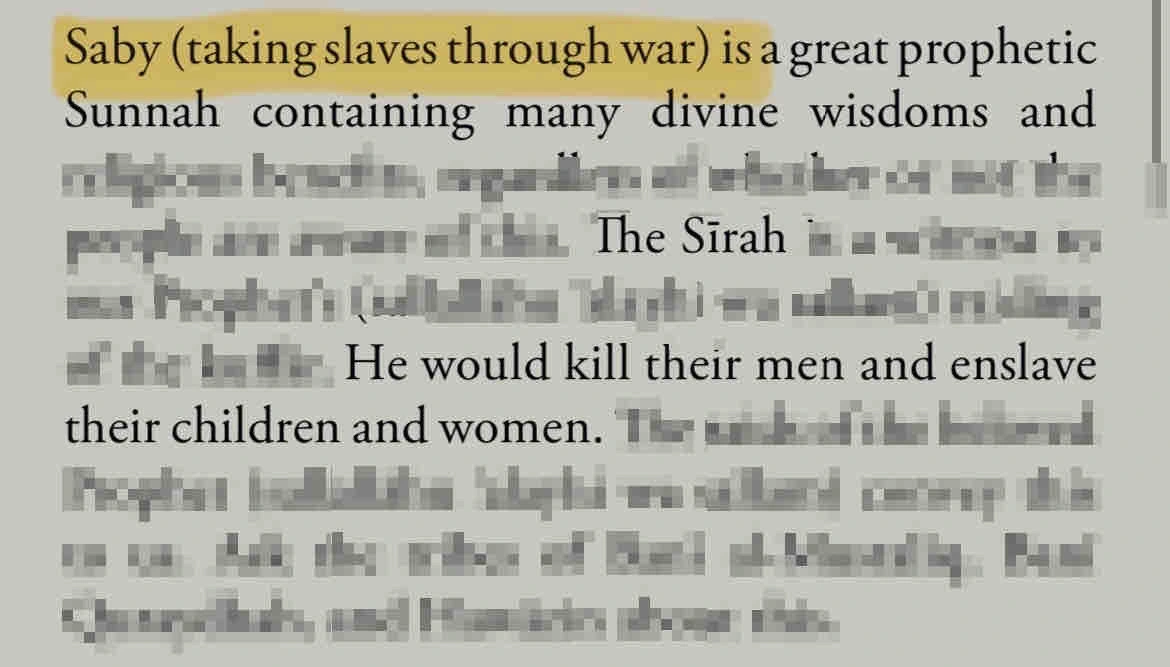
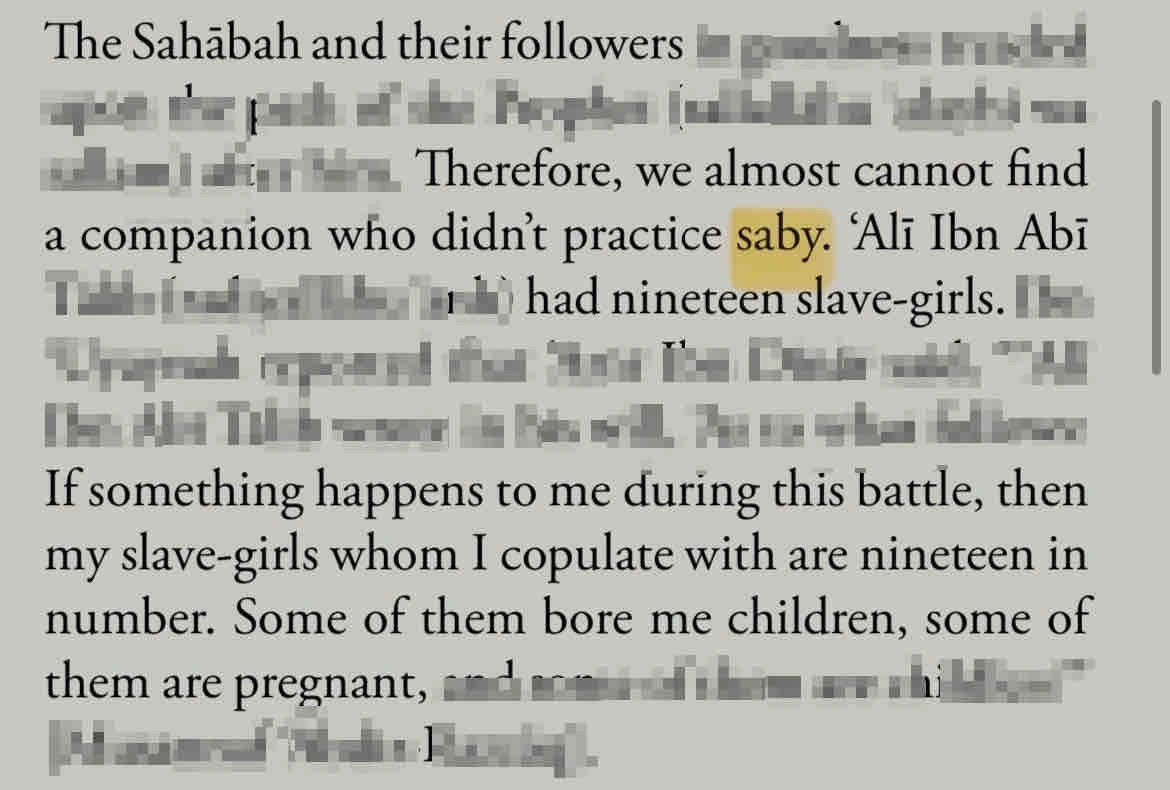
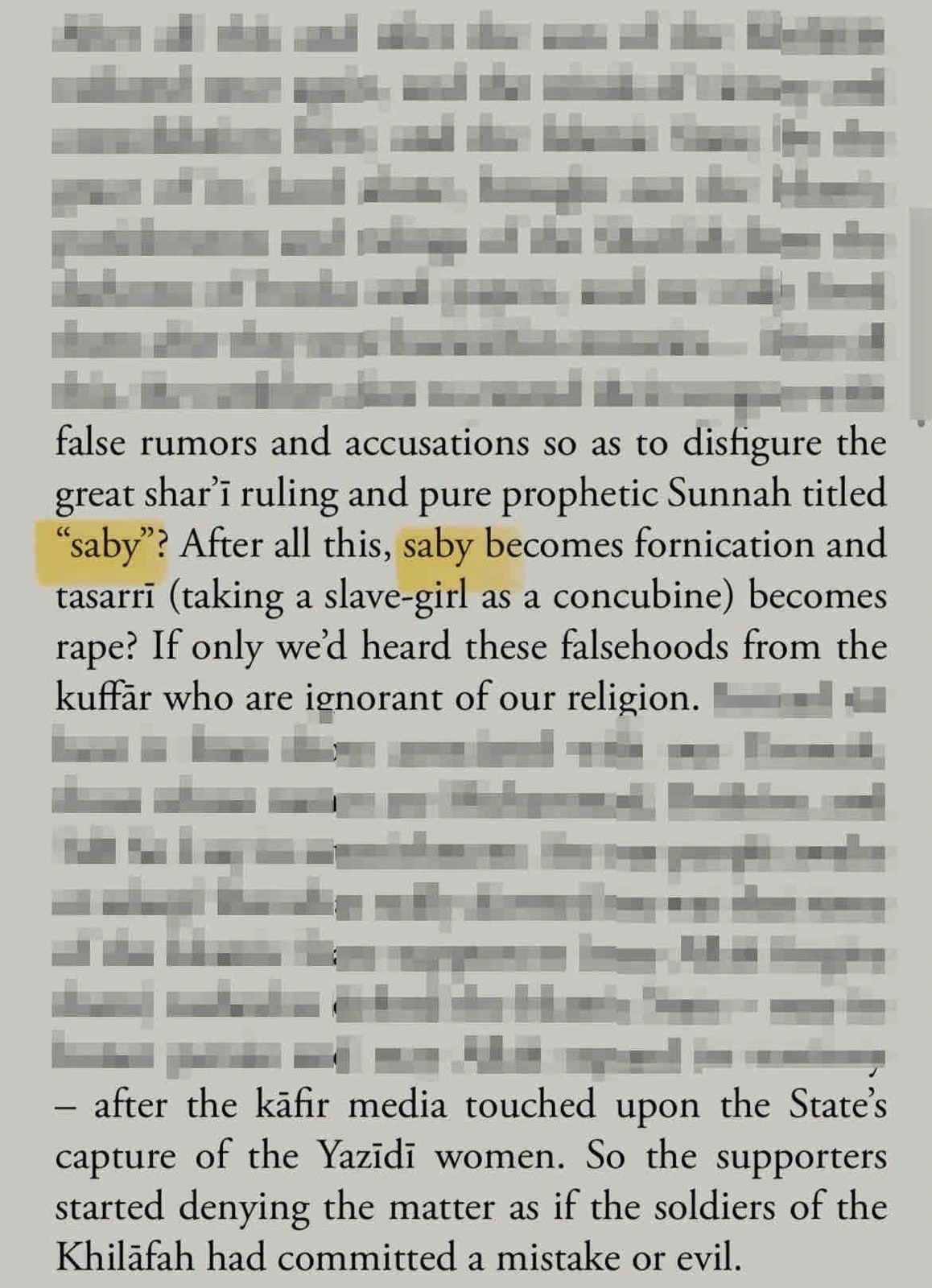
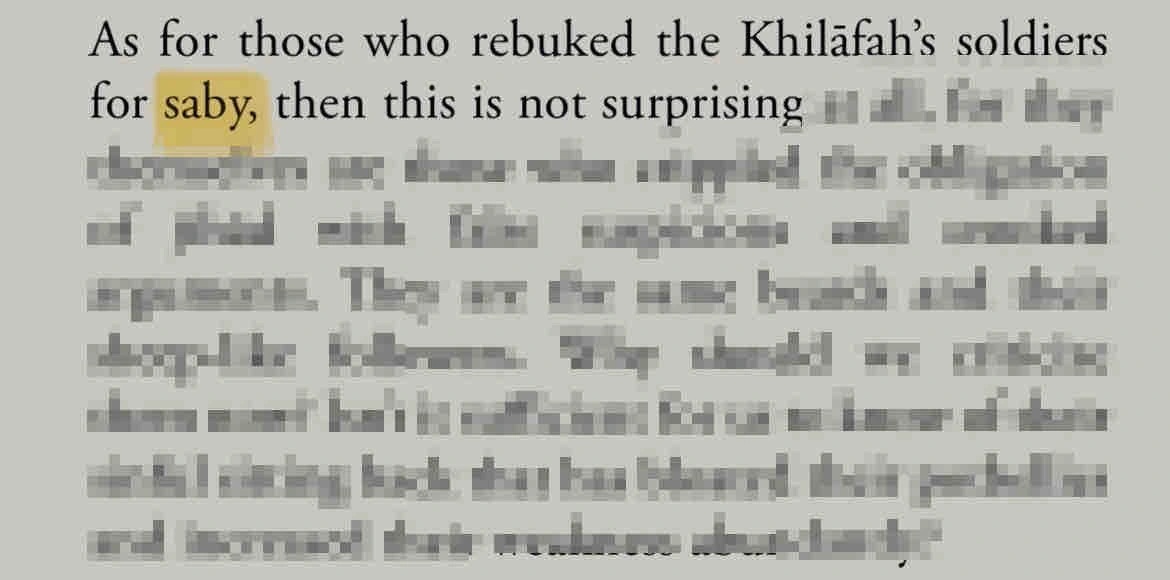
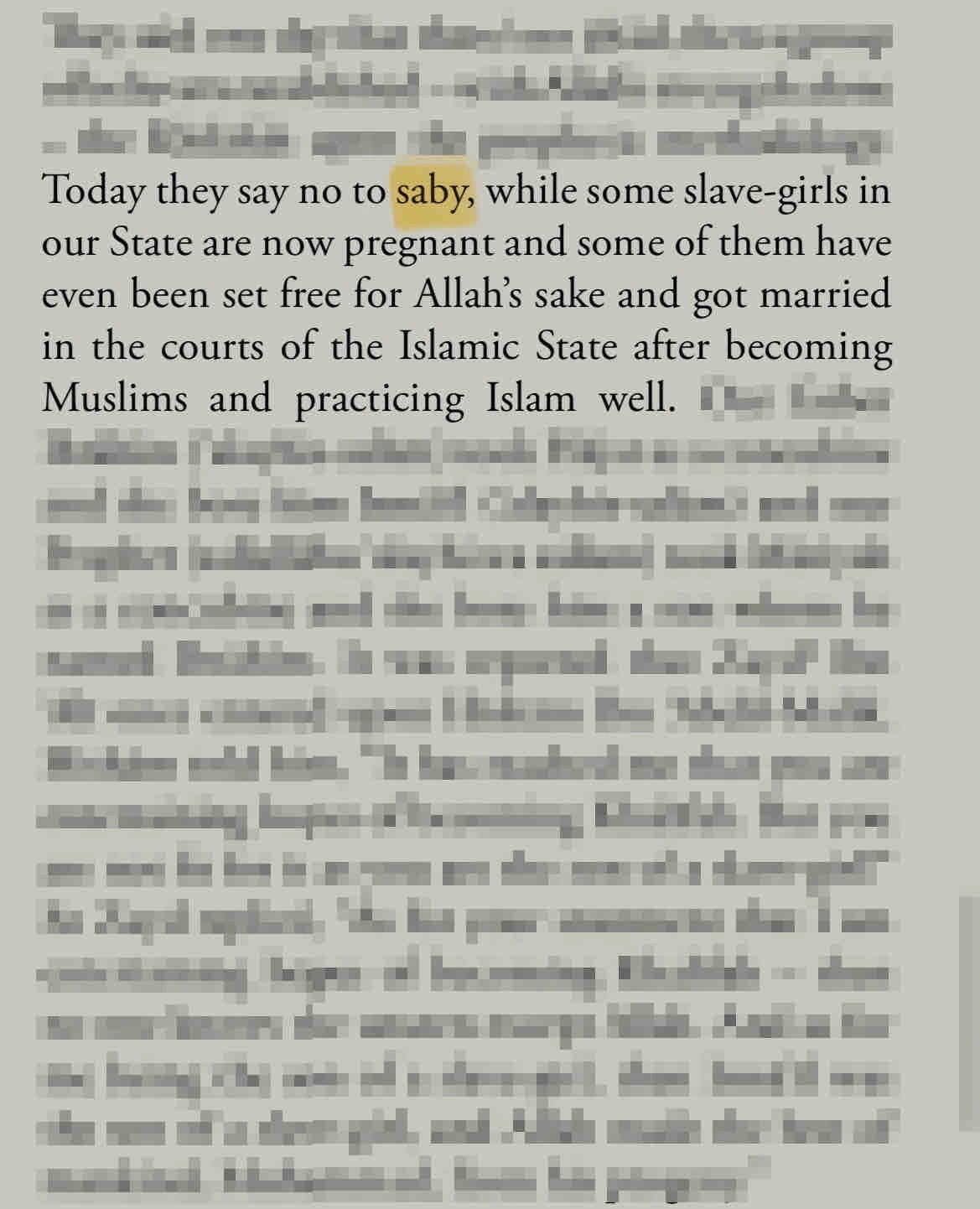
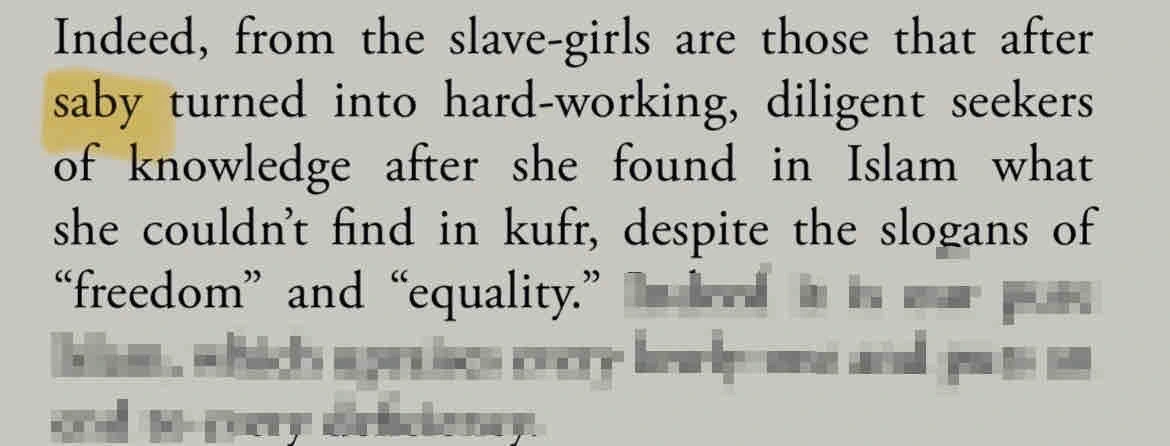
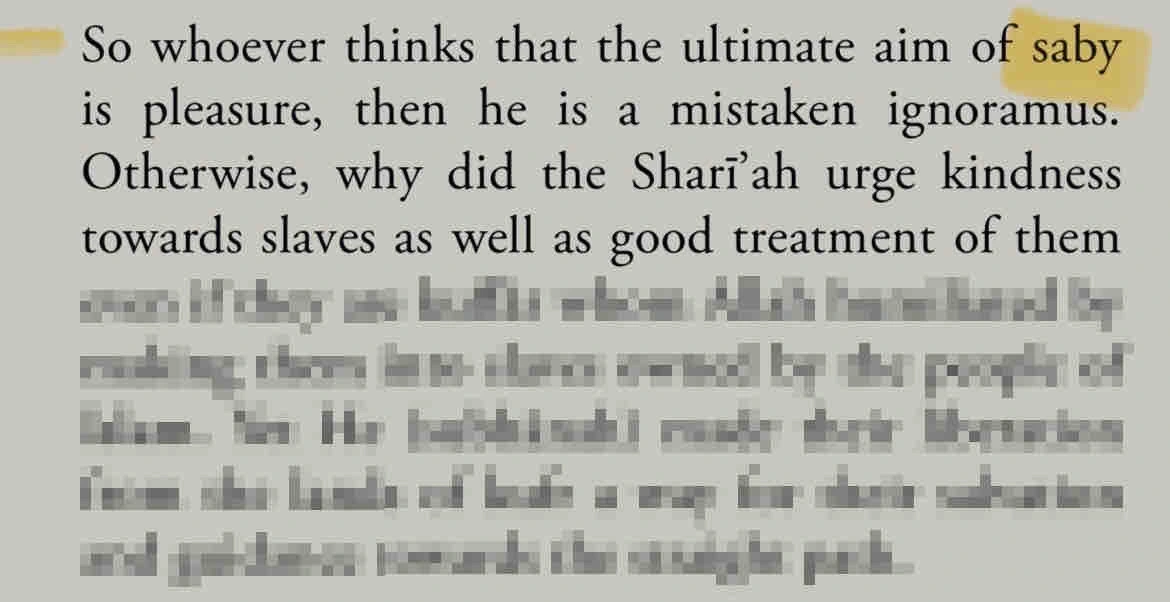
From the infamous Reddit AMA: https://archive.ph/s2tqH

I see the publisher of the above is Friedrich Ebert Stiftung. Could you share a link in relation to how they perceive zionism?
After that link I literally added redacted screenshots of a primary source that was published by ISIS
It does not matter what the publisher of the document in the first link thinks about Zionism. I don’t know and I don’t care.
Ok, no link. I’ll go to another point.
You try to present arguments against Hamas by talking about ISIS. ISIS and Hamas are not interchangeable words, and Hamas is not ISIS.
Also even if I don’t speak any variation of arabic it is well known that words can have different meaning in different places in which the same language is officially spoken. We have many examples of english speaking people that use the same word differently, like very differently.
So what are you really trying to do?
it does seem excessively lurid to suggest, without direct evidence, that they have been raped in captivity for the past several months
But you’re just going to do it anyway?
Yes, we all know Hamas is bad.
That justifies nothing Israel has done in this war.
As long as people realize it doesn’t justify Hamas’s action either
First of all, why does it matter what people realize? Will it stop more killing?
Secondly, I think the vast majority of people in this world understand that Hamas is a terrorist group that should not be supported.
People are supporting Palestinians, not Hamas.
Thank you. I think this nuance is often lost by those barely paying attention
I agree. Over 60% of Palestinian people (some of who are loosely affiliated with Hamas, some of who are friends and family with Hamas fighters, some who joined Hamas as they invaded Israel and some who are Hamas fighters) support Hamas and it’s very reasonable to assume these same people agree with the actions of Hamas (invading, mudering innocent people, kidnapping innocent people) on October 8. And yes it’s sometimes a very blurry line between an innocent civilian, a civilian giving support, a civilian carrying a weapon to supply to fighters, a civilians knowingly manufacturing items that are used by Hamas fighters and Hamas fighters.
Racist Zionist propaganda.
Not to mention projection
but but but my MBFC rating!!111!
I’m just going to copy & paste my response from an earlier post:
Never thought knowing Palestinian Arabic could become so useful. Sabaya is a very normal word to use for youngish women. Maybe in high Arabic it is a more specific term but in every day language no one in their right mind would think about anything related to pregnancy, that’s just ridiculous. Maybe it’s implied, just like it’s implied in “girl” or “young woman”, but that’s just a very desperate attempt to make it sound more than it actually is.
More background:
In Fusha (high Arabic) there are allegedly like 50 different names for a camel depending on what it’s up to. E.g. it has a different name when it’s drinking, sitting, pregnant, young, old, … very similar to cattle terminology in English: https://en.m.wikipedia.org/wiki/List_of_cattle_terminology
Why I’m mentioning this isn’t because I want to equate women to cattle (please don’t read this out of my comment, that’s not at all what I’m saying just to be very clear). I’m saying it because Arabic is a very rich and complex language. I really don’t know much about Fusha but it can very well be that sabaya means something more specific there in terms of what kind of women these sabaya are exactly. Anyway, even if that were the case in every day language no one would actually try to specifically mention that some woman is capable of getting pregnant.


